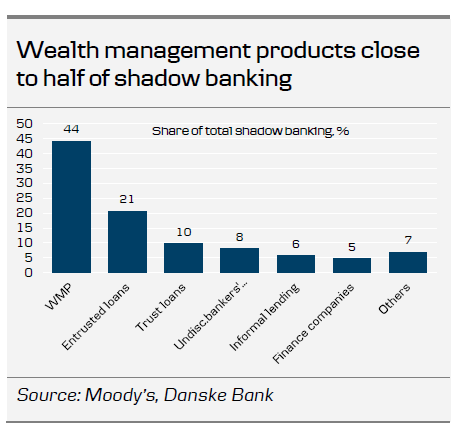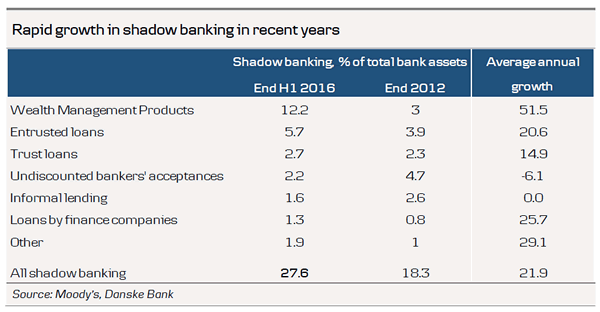Overnight Moody’s downgraded China by one notch from Aa3 to A1 – the first downgrade since 1989 (see link). It changed the outlook from negative to stable.
The rationale behind the downgrade is rising debt and Moody’s expectation of a continuing increase in leverage in coming years, which will erode China’s financial strength. Moody’s also highlights that the growth target the government is pursuing in the Five-Year Plan will rely on continued stimulus and rising leverage. ‘Taken together, we expect direct government, indirect and economy-wide debt to continue to rise, signalling an erosion of China’s credit profile, which is best reflected now in an A1 rating.’
The move by Moody’s does not seem to relate to the recent bouts of financial stress but is based more on a long-term sustainability analysis.
S&P could soon follow, as it now has a one-notch higher rating than both Moody’s and Fitch.
Our take on China’s financial risks
We expect focus to return to China’s financial risks this year, as growth slows down. We continue to see downside risks to Chinese growth based on the policy tightening already done and the current stress in bond markets. We do not expect a big financial crisis in the short term (next one to two years), as we believe China is likely to take a step back on regulatory tightening if stress gets too high and threatens the economy ahead of the 19th National Congress of the Communist Party in the autumn.
Nevertheless, we expect China to be an increasing drag on global growth and risk appetite this year. On a three- to five-year horizon, we still see a 50% risk of a financial crisis in China or a lost decade of growth (Japan scenario) as the economy deleverages
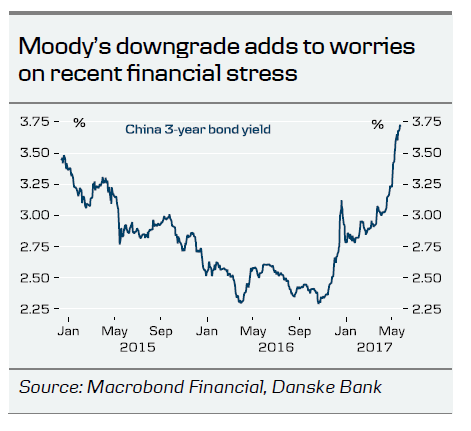
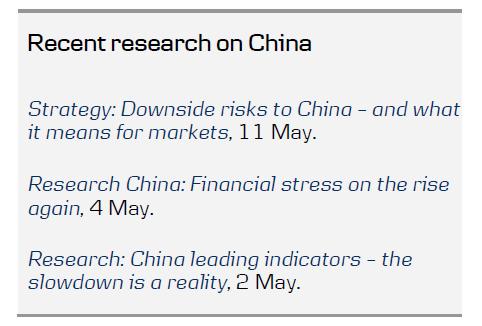
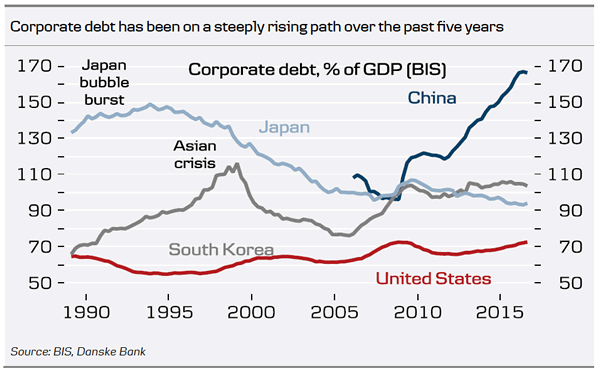
Our concern does not relate only to the rapid rise in corporate debt that has taken place but also to it happening alongside a rapid growth in shadow banking, where the safety net is much smaller than in the traditional banking system. Shadow banking is all intermediation between savers and borrowers that takes place outside the traditional banking system.
A lot of China’s debt has been intermediated through wealth management products (WMP), which have seen average growth of 50% since 2012. In order to deliver the promised return, WMP invest in higher risk loans. However, Chinese households putting money into WMP expect them to be government guaranteed. If losses start to mount in some of these loans, the promised returns will not be delivered and households could quickly pull their money out of these products again, leading to a liquidity crisis where companies struggle to roll debt, which could trigger a negative spiral of higher yields, rising defaults, economic slowdown, even more bankruptcies and so on.
The development in China’s financial system needs close monitoring and we expect it to become an increasing focus this year when growth slows down.
The medium-term risks and structural downside pressure on growth are the main reasons we continue to look for a continued gradual weakening of the CNY versus both the USD and EUR over the coming years and recommend to hedge CNY receivables.
